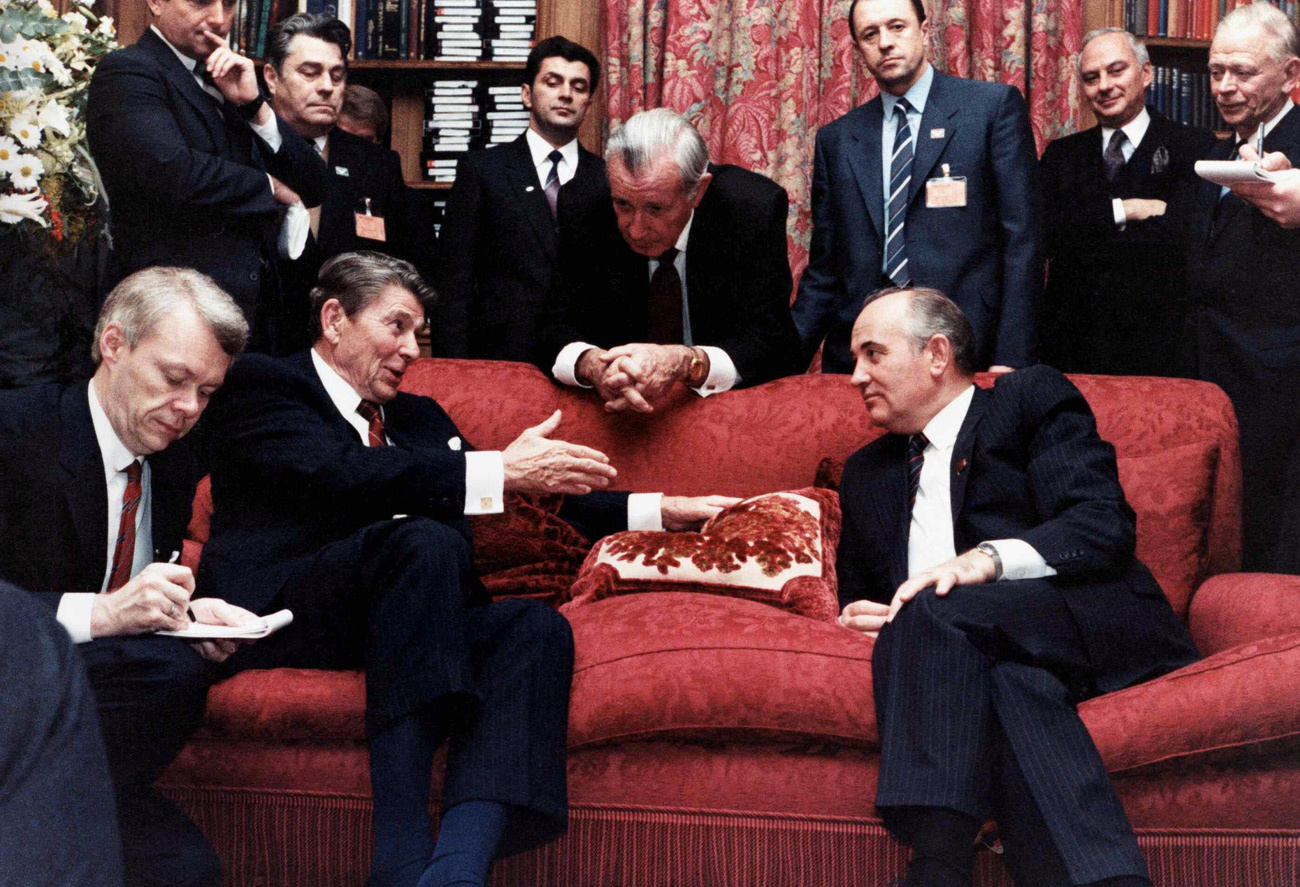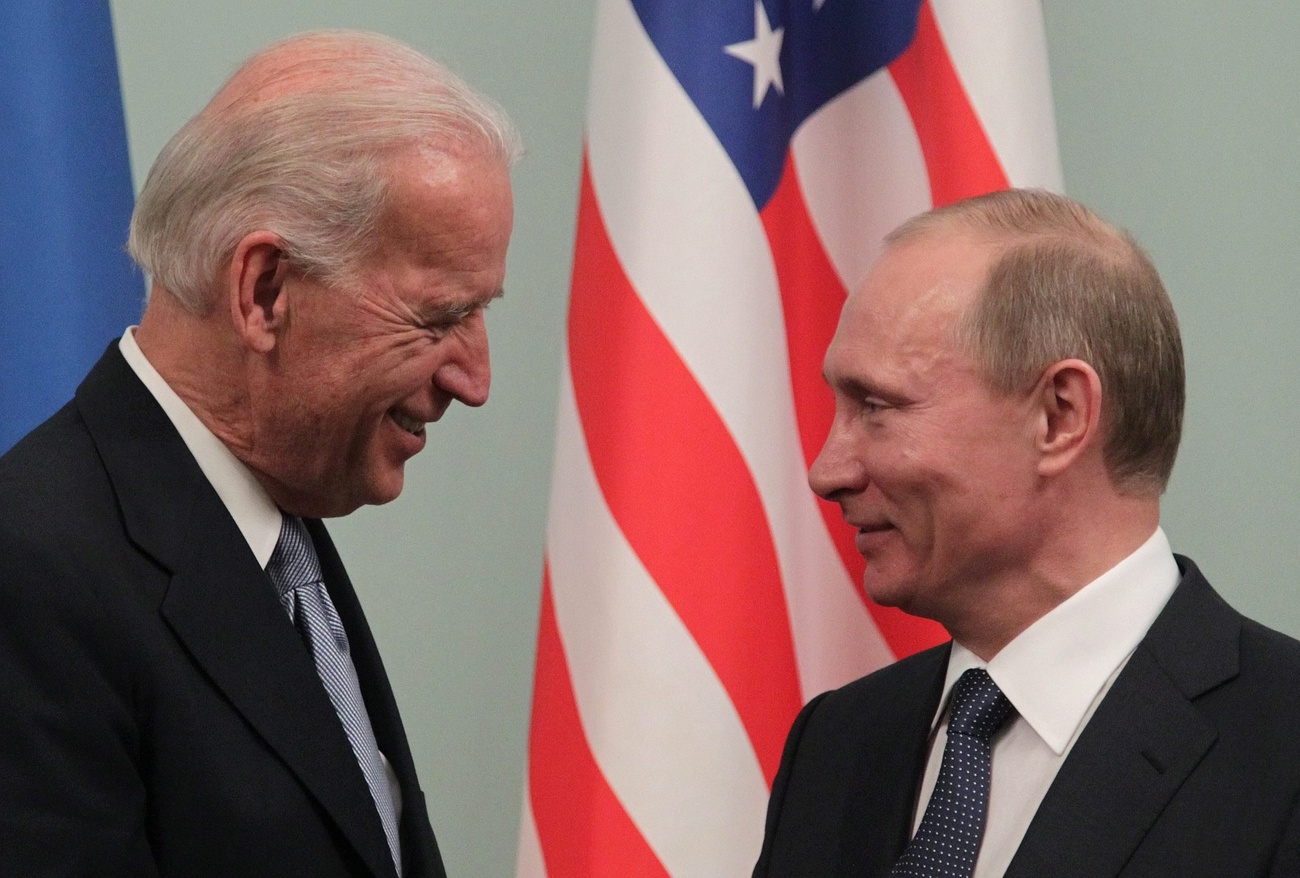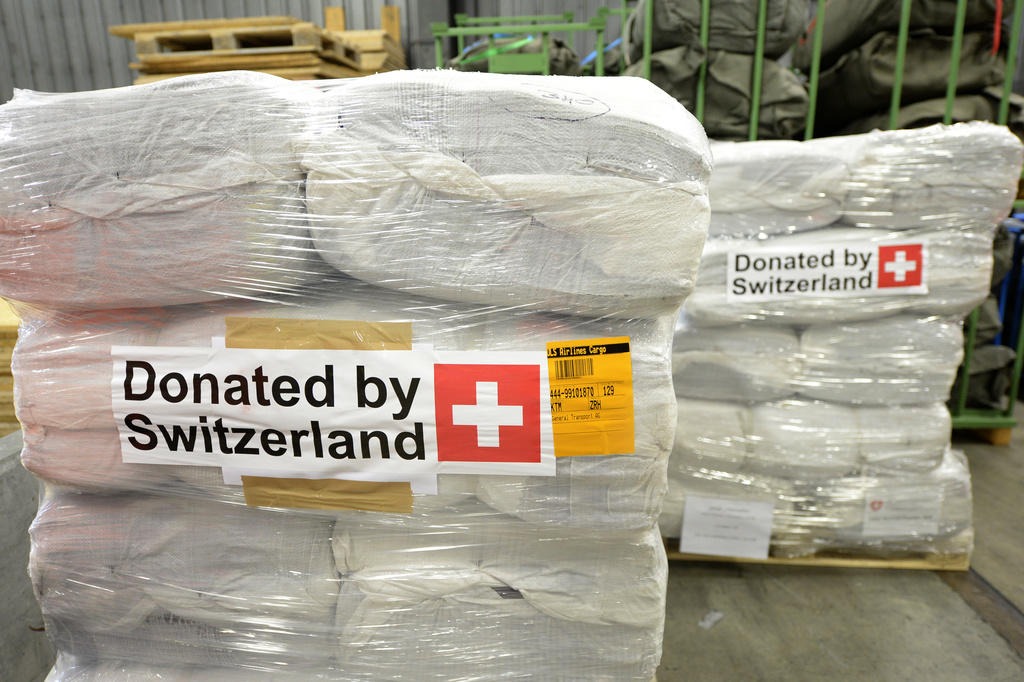The Biden-Putin summit and hotel diplomacy
International Geneva is abuzz with the announcement of a Biden-Putin summit during Joe Biden’s first trip outside the United States as president. But is the Swiss city appealing as it used to be on the international scene?
After meetings of the G-7 in Cornwall, and NATO and the European Union in Brussels, Biden will come to the City of Calvin mid-June to meet with the Russian president. The Geneva excitement harkens to memories of the Reagan-Gorbachev summit in 1985, which is considered a major step in the end of the Cold War. (Hopefully, it will not harken to the Hillary Clinton-Lavrov reset button failure in Geneva in 2009.) It also is a major victory for Geneva’s reputation as the Rome of multilateralism and Switzerland’s historic neutrality.
What is the significance of this summit? For the Americans, according to the White House, it will restore a degree of predictability and stability in the tense bilateral relations. For the Russians, according to the Kremlin, it will be an opportunity to review the pandemic and various regional conflicts. Not exactly the importance of Reagan-Gorbachev discussion of reducing nuclear arms or bringing an end to the Cold War. But an improvement over Biden’s calling Putin a killer in response to a journalist’s question.
What could be on the agenda? Following Secretary of State Antony Blinken’s meeting with his Russian counterpart Sergei Lavrov last week on the Arctic, a serious agreement on climate change would be a major breakthrough. More sensitive would be discussions on Russian build-up on the eastern border of Ukraine, its takeover of Crimea, its election interference during the 2016 U.S. presidential election, the SolarWinds cyberattack, the situation of the dissident Alexi Navalny or the Belarusian skyjacking and arrest of their dissident as well as the American claim of Russian offers of bounty on killing US troops in Afghanistan. This long list could also include Russia’s role in Syria or eventual support for a solution to the Israel-Palestinian dilemma.

More
The Geneva Summit
From Biden’s perspective, I am sure he would rather be back in Washington to focus on domestic issues such as the infrastructure package. While his attendance at the G-7, NATO and EU meetings was expected, meeting the Russian president takes time and energy out of the president’s self-declared priorities of the pandemic and economy. Will this summit increase his prestige enough to help his domestic agenda? As with the Israeli crisis, the American president cannot ignore international realities.
And while he has been more than dramatic in many of his domestic proposals as well as having reversed many of Donald Trump’s policies at home and abroad, there have been no major policy shifts in foreign affairs. It would be surprising if anything dramatic emerged from these talks.
As for Putin, he will want to use the summit to position himself once again as an indispensable player in global politics.
What should also be noted is that at the same time the Swiss were chest thumping about having the summit in Geneva, they announced that they were cancelling negotiations with the European Union after 15 years of unsuccessfully finding a bilateral institutional agreement. The Swiss are the fourth largest commercial partner with the EU after China, the United States and the United Kingdom. Not bad for a country of only 8 million people. In other words, the pride of having a bilateral dialogue between two of the world’s superpowers in Geneva happened at the same time the Swiss decided to stop negotiating with their major trading partner.
Switzerland prides itself on diplomatically punching above its weight. Geneva is the seat of numerous international organizations. It has hosted numerous summits and important diplomatic negotiations. But, as the failure of the negotiations with the EU points out, being the host to a summit is not the same as having an input to the content of the negotiations. Hotel diplomacy should be more than guaranteeing security and hospitality are provided. Not a small affair, but quite different from actively participating in the actual negotiations as an equal partner.
So while Switzerland is abuzz with the announcement of the upcoming summit, and its reputation for world class hospitality, neutrality and security are being globally put forward, the failure of its actual diplomacy cannot be ignored. The paradox of glorifying in the choice of Geneva as the site of an important summit cannot erase the failure of 15 years of negotiations with its biggest commercial partner.
The views expressed in this article are solely those of the author, and do not necessarily reflect the views of swissinfo.ch.
Opinion series
swissinfo.ch publishes op-ed articles by contributors writing on a wide range of topics – Swiss issues or those that impact Switzerland. The selection of articles presents a diversity of opinions designed to enrich the debate on the issues discussed. If you would like to submit an idea for an opinion piece, please e-mail english@swissinfo.ch

In compliance with the JTI standards
More: SWI swissinfo.ch certified by the Journalism Trust Initiative












You can find an overview of ongoing debates with our journalists here . Please join us!
If you want to start a conversation about a topic raised in this article or want to report factual errors, email us at english@swissinfo.ch.